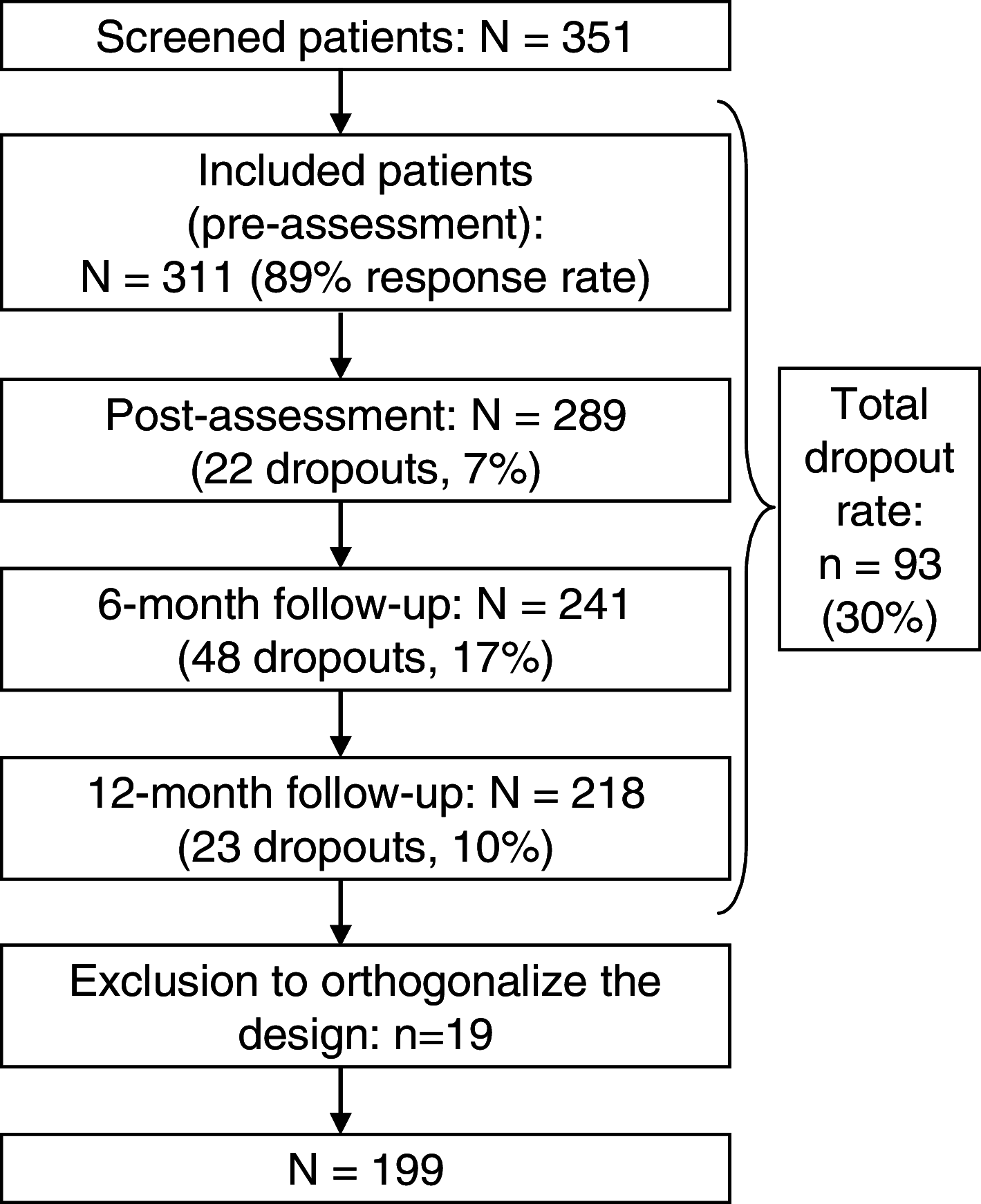Effects of gender and cognitive-behavioral management of depressive symptoms on rehabilitation outcome among inpatient orthopedic patients with chronic low back pain: a 1 year longitudinal study
- PMID: 19562387
- PMCID: PMC2899429
- DOI: 10.1007/s00586-009-1080-z
Effects of gender and cognitive-behavioral management of depressive symptoms on rehabilitation outcome among inpatient orthopedic patients with chronic low back pain: a 1 year longitudinal study
Abstract
Psychological factors have been found to be of major importance for the transition from acute to chronic low back pain (CLBP). Although some evidence has been provided that depressive symptoms occur secondarily to CLBP, psychological treatment modules that specifically address depressive symptoms are not yet included in German inpatient rehabilitation programs. In this study, a standard rehabilitation program for patients with CLBP and depressive symptoms was compared to a standard rehabilitation, into which a cognitive-behavioral management training of depressive symptoms was integrated. Moreover, treatment effects of this multidisciplinary standard rehabilitation program delivered to patients with either no or only mild depressive symptoms were investigated. As a further aim of the present study, gender effects on rehabilitation outcomes were examined. Short-, mid-, and long-term effects on individual global improvement as well as pain-related, psychological, and work-related measures were evaluated among N = 199 consecutively admitted patients with CLBP, aged from 24 to 62 years. The standard rehabilitation program had no persisting effects on psychological outcomes among patients with no and mild depressive symptoms. Patients with moderate and severe depressive symptoms in the standard rehabilitation program did not benefit with clinical importance at the 6- and 12-month follow-up assessments, but did show clinically significant improvements in psychological outcome measures at the 6-month follow-up assessment when the supplemental psychological component was applied. Additionally, days of sick leave decreased in the intervention group in the mid-term when compared to the baseline. Females benefited more in mental health than males. However, due to regression effects at the 12-month follow-up assessment, booster sessions are highly recommended. The results presented here support the notion that a more adequately tailored rehabilitation program seems to improve rehabilitation success and prevent further development of CLBP among this high-risk subpopulation.
Figures
References
-
- Bullinger M, Kirchberger I. SF-36 Fragebogen zum Gesundheitszustand. SF-12 Kurzversion des SF-36 [SF-12. German short version of the SF-36] Göttingen: Hogrefe; 1998.
-
- Cohen J. Statistical power for the behavioural sciences. New York: Academic Press; 1977.
Publication types
MeSH terms
Substances
LinkOut - more resources
Full Text Sources
Research Materials



